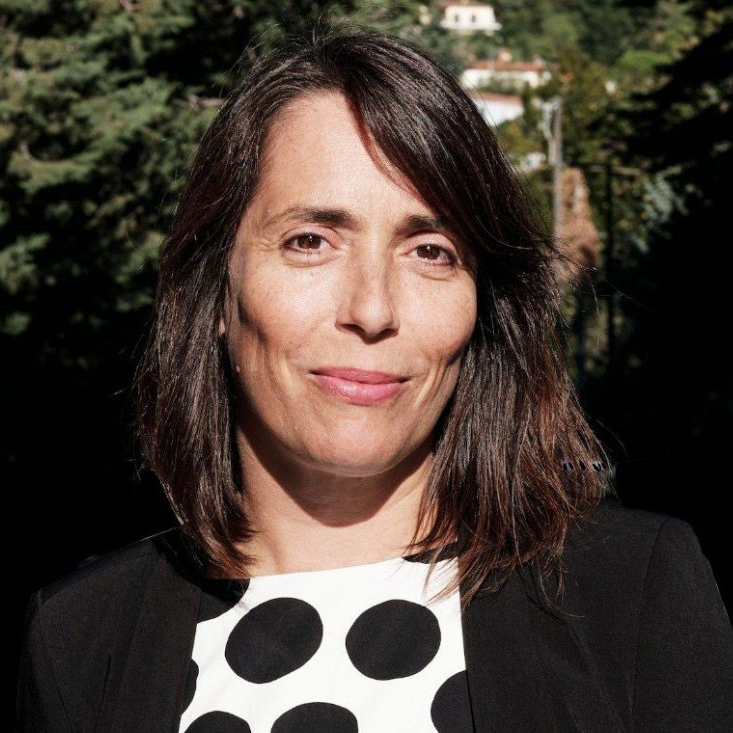
October 24, 2023
K. Montgomery explained the framework for Science Diplomacy with three pillars: science for diplomacy, science in diplomacy, and diplomacy for science. These pillars cover the “soft” power of science to improve relations between countries even where official relations are strained or severed, how scientific knowledge and expertise help inform diplomatic objectives and foreign policy, and the ability of diplomacy to facilitate scientific cooperation across borders, respectively. She stressed that the motivation of science diplomacy is not to advance science but to affect relationships. M. R. Zou’bi addressed the Science Diplomacy and Human Security nexus by revisiting the science diplomacy landscape within the scientific enterprise historically and in the current science-related socioeconomic development scene, taking-into-account all main dimensions of Human Security: economic, food, health, environmental, personal, community, and political security. He also talked about the backdrop of global and national efforts to achieve the 2030 Agenda for Sustainable Development, which should be further reviewed in the post-COVID-19 world.
A. Pirani gave a brief overview of the findings of the latest report of the Intergovernmental Panel on Climate Change (IPCC), covering the physical basis of climate change and its impacts and future risks, together with the options for adaptation and mitigation action. As the IPCC embarks this year on its seventh assessment cycle, in the decade when ambitious climate action is needed to limit global warming in the context of the Paris Agreement, she discussed key challenges and opportunities where the IPCC can contribute to advancing science diplomacy and negotiations on climate change. M. Vesković talked on a new approach to Science Diplomacy in the EU, the importance of the cohesion policies in the EU, the EU water diplomacy and macro-regional strategies (MRSs), and MRSs as an instrument for Science Diplomacy. Regarding water diplomacy, he emphasized that cooperation on water should be harnessed to promote regional integration and address political instability and gave the example of the EU Strategy for the Danube region (EUSDR), which includes 14 countries along the Danube.
Moderator

Nebojša Nešković
Vice President (Science & Technology), World Academy of Art and Science; President, Serbian Chapter of the Club of Rome
Speakers

Kimberly Montgomery
Director of International Affairs and Science Diplomacy, American Association for the Advancement of Science
What is Science Diplomacy?
The report New Frontiers in Science Diplomacy, published by the American Association for the Advancement of Science (AAAS) and the Royal Society in 2010, lays out a framework for science diplomacy with three pillars: science for diplomacy, science in diplomacy, and diplomacy for science. These pillars cover the “soft” power of science to improve relations between countries even where official relations are strained or severed, how scientific knowledge and expertise help inform diplomatic objectives and foreign policy, and the ability of diplomacy to facilitate scientific cooperation across borders, respectively. It is important to note that science diplomacy is not just a word for international scientific cooperation. The motivation for international scientific cooperation is to advance science, whereas the motivation for science diplomacy is to affect relationships. Science diplomacy operates in a context, and one that has become more complex and challenging. There have been conflicts in the Middle East and across Europe that likely will have political and economic implications for decades to come. Governments are imposing new rules and restrictions on international scientific collaboration and are considering limits to the scientific topics because of possible implications for national security and defense. Science diplomacy will be impacted by this changing landscape, but this new era calls for the strengthening not reducing science diplomacy efforts. If the world is going to make progress on shared problems such as climate change and food security, international cooperation is essential, which will take stronger – not weaker – connections between the scientific and foreign affairs communities.

Moneef R. Zou’bi
Trustees, World Academy of Art and Science; Fellow, Academy of Engineering and Technology for the Developing World; Science Advisor, InterAction Council; Co-Founding Director, World Sustainability Forum
Science Diplomacy in the post-COVID world: A snapshot of the human security perspectives
Diplomacy is typically defined as the art and the science of how nations, groups, or individuals conduct their affairs in ways to enhance their soft power, secure their interests, and promote their political, economic, cultural, or scientific agendas while maintaining peaceful relationships at all levels. Within this framework, Science Diplomacy has evolved historically as a process whereby science-based enterprises and scientific collaborations among stakeholders are used to address a wide array of problems to bridge divides and build constructive international partnerships between individuals, institutions, nations, and cultures. Science Diplomacy has become a North-South and a South-South enterprise, and indeed a means to achieve human security which starts with people and what it means to be safe and secure. Human security means security from harmful disruptions and calamities – in the home, at work, at the community and environmental levels. Human security is also about our needs and hopes, our chance to develop our potential, especially those of us who are the most vulnerable, and has seven main dimensions: economic, food, health, environmental, personal, community, and political security.
The Science Diplomacy and Human Security nexus ought to be addressed by revisiting the science diplomacy landscape within the scientific enterprise historically as well as in the current science-related socioeconomic development scene. This should be done against the backdrop of global and national efforts to achieve the 2030 Agenda for Sustainable Development and the Sustainable Development Goals, which must be further reviewed in our post-COVID-19 world.

Anna Pirani
Head of Working Group I, Intergovernmental Panel on Climate Change; Senior Research Associate, Euro‐Mediterranean Centre for Climate Change, Venezia, Italy
Human-induced climate change and Science Diplomacy
The Intergovernmental Panel on Climate Change (IPCC) is a unique science-policy interface that provides regular comprehensive assessments on the state of knowledge on climate change. This information has been the basis of science-based policy-making on climate change issues over the past 30 years or so, particularly in the context of climate change negotiations in the UN Framework Convention on Climate Change (UNFCCC). How the IPCC process works and the assessment of policy relevant but not policy prescriptive evidence undertaken with scientists from around the world is explained alongside the influence that this has had on international policy. A brief overview of the findings of the latest IPCC report is presented, covering the physical basis of climate change and its impacts and future risks, together with the options for adaptation and mitigation action. As the IPCC embarks this year on its seventh assessment cycle, in the decade when ambitious climate action is needed to limit global warming in the context of the Paris Agreement, we discuss key challenges and opportunities where the IPCC can contribute to advancing science diplomacy and negotiations on climate change.

Miroslav Vesković
Coordinator of Scientific Support to Macro-Regional Strategies, Joint Research Centre, European Commission; Member, Serbian Chapter of The Club of Rome; Member, EU Chapter of The Club of Rome
EU macro-regional strategies – Science Diplomacy in action
EU and a new approach to Science Diplomacy. The Council of the EU has called for the development of the European Science Diplomacy Agenda by 2023. Four work strands are emerging: (1) how to use Science Diplomacy strategically to tackle geopolitical challenges in a fragmented, multipolar world; (2) how to make the European diplomacy more strategic, effective, and resilient through scientific evidence and foresight; (3) how to strengthen Science Diplomacy in the EU and its Member State diplomatic missions and foster the EU’s global Science Diplomacy outreach; (4) How to build the capacity for the European Science Diplomacy.
Importance of the cohesion policies in the EU. “United in diversity” is the motto of the EU. Europe is when citizens from six border regions in France, the Czech Republic, Germany, and Poland meet, learn from each other, and develop ideas together. Europe is (would/should be) when people from the Western Balkans meet, learn from each other, and develop ideas together.
Water diplomacy and macro-regional strategies (MRSs) – Science Diplomacy in action. “EU water diplomacy must aim at facilitating the prevention, containment and resolution of conflicts, contributing to the equitable, sustainable and integrated management of water resources from source to sea, and promoting resilience to climate change impacts on water. Cooperation on water must be harnessed to promote regional integration and address political instability.” (EU Council Conclusions on Water Diplomacy, 2018) MRSs as an instrument for Science Diplomacy. The water diplomacy in Europe is closely linked to MRSs, especially the EU Strategy for the Danube region (EUSDR), which includes 14 countries along the Danube. These frameworks address common challenges and opportunities by setting shared, long-term objectives. MRSs address issues requiring several countries to cooperate based on a cross-sectoral and multi-level governance approach.

